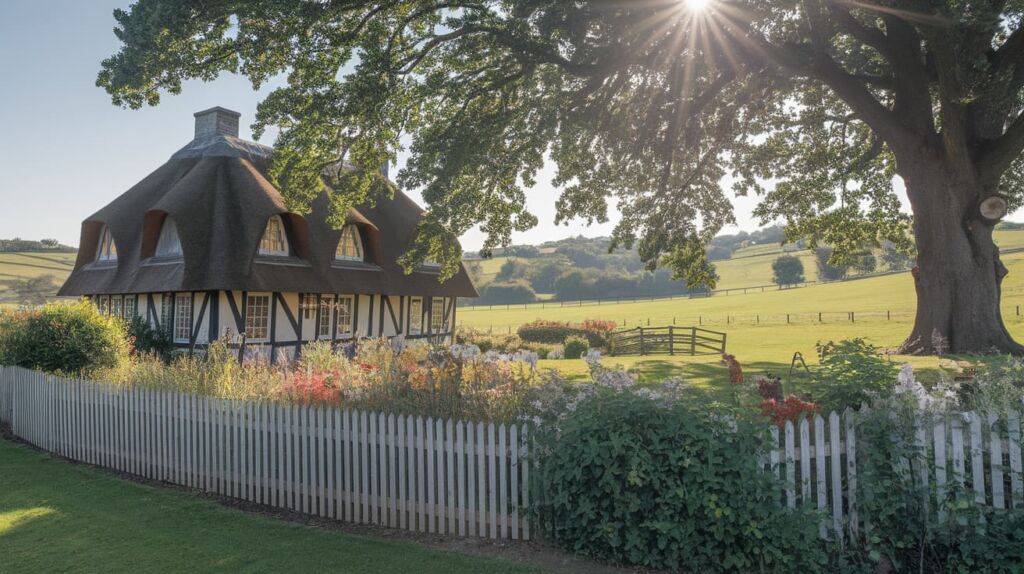Hey there! If you’ve ever thought about dipping your toes into real estate but found the idea of flipping houses or managing tenants a bit much, let me introduce you to a quieter, often overlooked gem: land investing. It’s like the chill cousin of traditional real estate—less drama, more potential.
Land investing solutions are all about buying, holding, or flipping raw land for profit, and trust me, it’s not as complicated as it might sound. Whether you’re a newbie looking for a side hustle or a seasoned investor wanting to diversify, this approach has something for everyone.
In this article, we’ll break it down into four juicy chunks: why land investing is worth your time, how to find the right piece of dirt, smart ways to make money with it, and a few pitfalls to dodge along the way. By the end, you’ll have a solid grip on how land investing could be your next big move. Ready? Let’s dig in!
Why Land Investing Stands Out?

So, why should you care about land investing? It’s got some serious perks that make it a standout compared to the usual real estate game. Here’s the scoop:
- Low Maintenance: No tenants calling about busted pipes or roofs to patch up—just buy it and let it sit there, minding its own business.
- Affordable Entry: You can snag land for way less than a house, and the property taxes? Usually a fraction of what you’d pay for a built property.
- Big Potential: If development—like a new highway or shopping center—rolls into the area, those land values can shoot up fast.
- Scarcity Factor: Here’s the kicker: they’re not making more land. It’s a finite resource, which gives it a built-in value that’s hard to beat.
That simplicity and upside are what draw folks in. You’re not stuck with the headaches of traditional properties, and the cost to get started doesn’t have to break the bank. Plus, there’s something satisfying about owning a piece of the earth, knowing it could pay off big down the road. It’s a slow burn, sure, but the rewards can be worth it.
Finding the Perfect Plot: Where to Look and What to Check?
Okay, you’re hooked on the idea. Now, how do you find a good chunk of land? It’s not like you can stroll into a neighborhood and knock on dirt’s door. The hunt starts with a bit of digging—figuratively, of course.
Online marketplaces are a great place to kick things off. Sites like LandWatch, LandFlip, or even eBay list raw land for sale. You can filter by price, location, or size—super handy for narrowing things down. Auctions are another hotspot, especially for tax-foreclosed properties.
Counties sell off land when owners skip out on taxes, and you can score deals dirt-cheap (pun intended). Local real estate agents can help too, though you’ll want one who knows land, not just houses.
Once you’ve got some options, don’t rush in blind. Check the zoning laws—those rules tell you what you can do with the land, like build a house or grow crops. Look at access, too. A cheap plot with no road is a nightmare waiting to happen. And don’t skip the environmental stuff—flood zones or rocky ground can sink your plans fast.
Pro tip: rural areas are often goldmines. Think 20-50 miles outside growing cities. You’re betting on future growth, and patience can pay off big. Just double-check it’s not a swamp—Google Maps and a quick call to the county office can save you from a soggy mistake.
Smart Ways to Profit
Alright, you’ve got your land—now how do you turn that dirt into dollars? There’s more than one way to cash in, and that’s what makes this so fun. Check out these options:
- Flip It Fast: Buy low, sell high—it’s the classic move. Grab a bargain, maybe spruce up the title or permits, and list it for more.
- Hold for Growth: Sit on it in an area poised to boom—like near a new suburb or highway—and sell when developers come knocking.
- Lease It Out: Rent it to farmers, hunters, or even solar companies. It’s passive cash without lifting a finger.
- Develop Yourself: Subdivide a big parcel, add some basic utilities, and sell off smaller lots for a fat profit.
The beauty here is the flexibility. If you’re into quick wins, flipping’s your jam. Prefer a long game? Hold and wait. Got a creative streak? Leasing or developing could be your thing. It’s all about what fits your vibe and wallet. Just pick a strategy and roll with it—there’s no one-size-fits-all.
Watch Your Step: Common Traps to Avoid

Before you dive in, let’s talk about the stuff that can trip you up. Land investing isn’t all sunshine and profits—there are some potholes to dodge.
Overpaying is the big one. It’s easy to get swept up in the excitement and bid too much, especially at auctions. Do your homework on comps—what’s similar land selling for nearby? If you overpay, you’re stuck waiting longer for a profit, or worse, taking a hit.
Title issues can sneak up on you too. Some parcels come with liens, disputes, or messy ownership histories. Always get title insurance or at least a thorough title search. You don’t want to inherit someone else’s headache.
Don’t sleep on the market either. A killer deal in a ghost town might never pay off. Check population trends, job growth, infrastructure plans—these hint at whether your land’s value will climb. And speaking of climbing, don’t expect it to happen overnight. Land can sit for years before it’s worth more, so have some cash stashed to tide you over.
Oh, and scams? They’re out there. If a deal sounds too good—like oceanfront property in Nebraska—it probably is. Verify the seller, the land’s location, the paperwork. A little skepticism can save you a lot of grief.
Wrapping It Up
So, there you have it—land investing solutions laid out plain and simple. It’s a quieter corner of real estate with less hassle and plenty of potential. You’ve got the low-maintenance appeal, the chance to snag deals, and a handful of ways to turn a profit—whether you’re flipping fast or playing the long game.
Sure, there are risks like overpaying or picking a dud spot, but with some research and patience, it’s a solid play.
What’s cool is how approachable it is. You don’t need a huge budget or a construction crew to get started—just a bit of curiosity and a willingness to learn. If you’re tired of the usual hustle and want something simpler yet rewarding, land investing might be calling your name.
Why not poke around online, scout a few listings, and see where it takes you? Could be the start of something pretty awesome.

